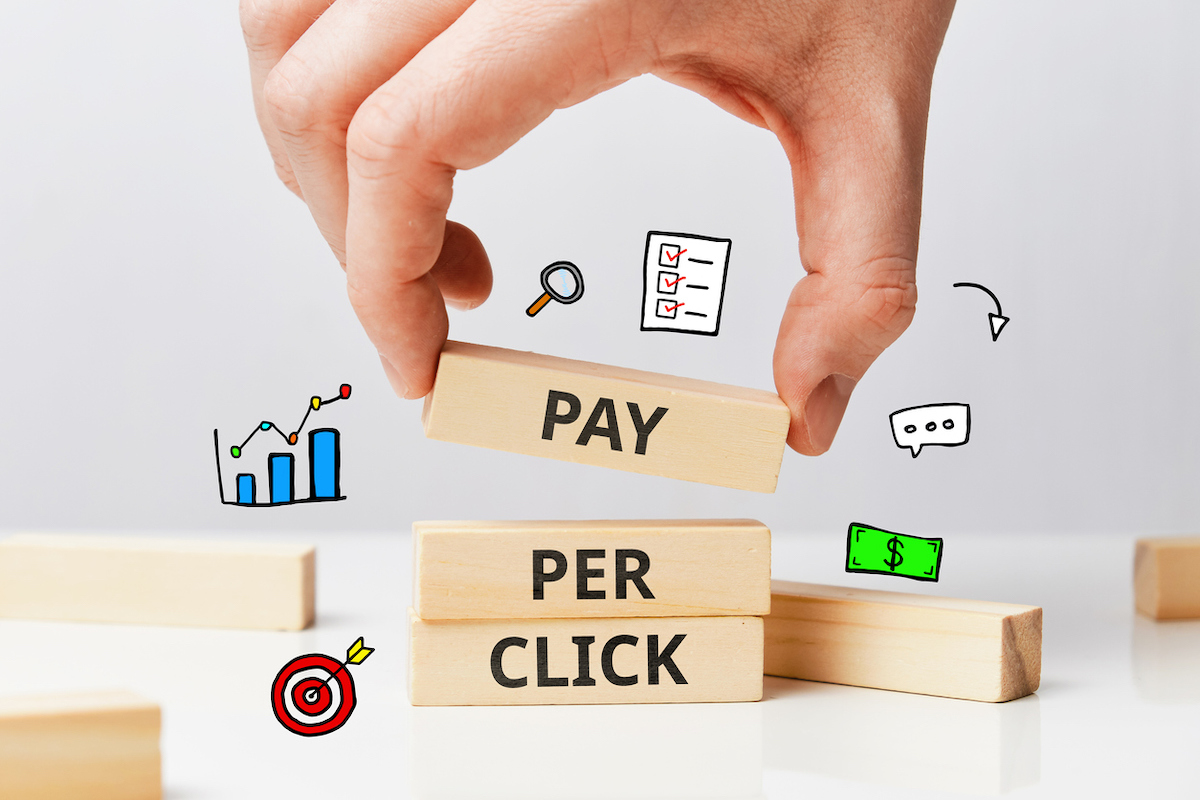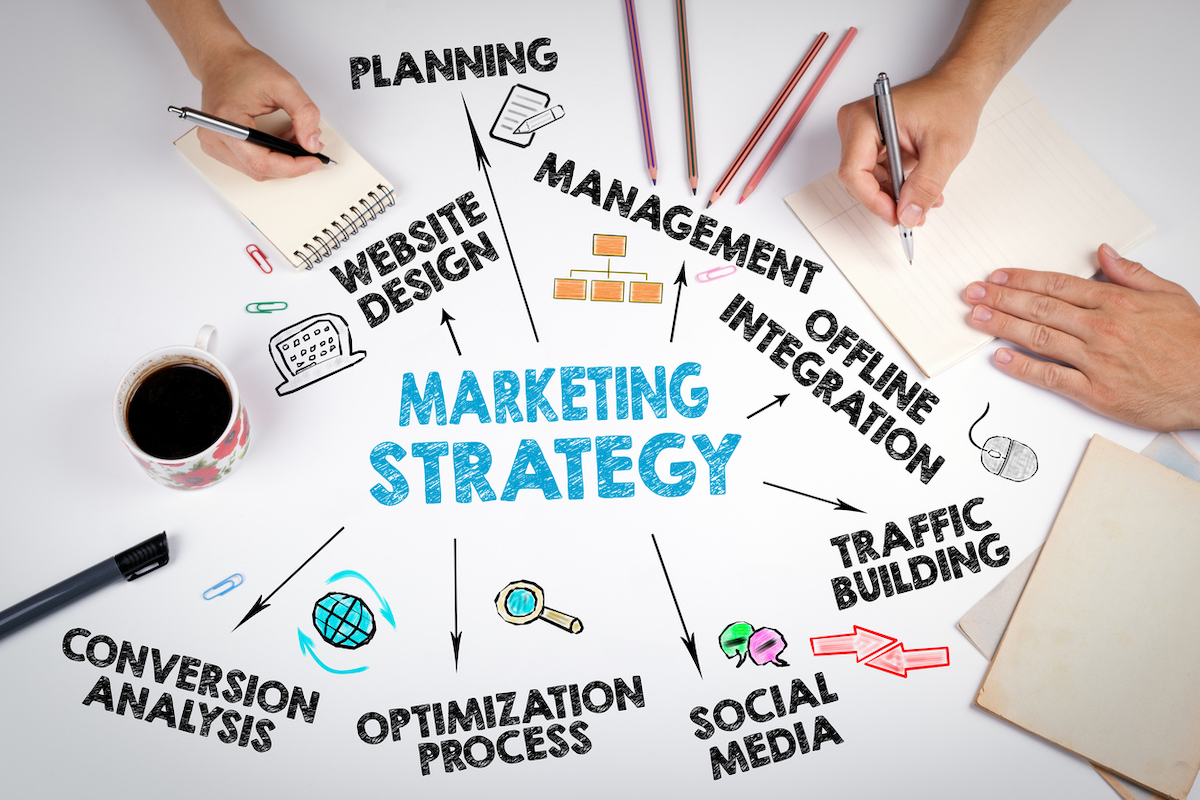Pay-per-click (PPC) ads, an online advertisement model that bases its use on gaining paid website traffic, is considered by many to be the most efficient way to gain new audience and, subsequently, achieve new purchases of your products or services. A PPC campaign will not only allow you to specify your audience in terms of demographics, but also to predetermine the budget that you are willing to invest in it, adapting your strategy into your business’s needs and financial capability.
Nowadays, PPC ads have become an integral part of search engines, as their presence in their results page is noticeably significant, as much as social media. In this manner, all types and sizes of brands are granted the opportunity to make their awareness soar and thus build the foundation of a successful digital marketing campaign. Undoubtedly, PPC Advertising has completely changed how digital marketing functions – and it is here to stay. Its operation, however, will require you to be aware of how to target the each time desired audience, one that will surely be interested in what you are selling, in order to maximise your Return On Investment (ROI).

The objectives of a PPC campaign
A PPC campaign needs to be thoroughly planned, specifically marketed at the target groups that it is built for. It should, furthermore, be serving several specific purposes, relevant to the establishment in the market and further development of a business unit. Therefore, PPC ads must be directly aimed at the creation of new sales leads and, thereupon, the conspicuous increase of the number of your website-related conversions.
Besides the improvement of your profitability, that arguably is the cornerstone of each and every business’s prosperity, a PPC campaign should also focus a lot on the amelioration of brand awareness. The latter is thought to be of high importance, as it practically signifies the expansion of a brand’s leverage over its target group and thus it is not only able to result in new sales, but also to act in favour of the maintenance of a loyal consumer base. In other words, even in cases when a PPC advertisement seemingly does not result in the desired sales volume, solely the increase of your social media reach is able to alter your brand’s position in the market, making it recognisable and competitive.
How does a PPC campaign function
As mentioned above, PPC ads give every business the opportunity to advertise their products, services or any other business-related aspects, across various platforms. This model of online advertising practically guarantees a number of non-organic traffic for all websites that incorporate it in their digital marketing strategy. A PPC ad can be hosted by various platforms, including search engines and social media. Each of them operate differently, while certain platforms are significantly more popular and widely-used than others, with Google’s search engine and social media such as Facebook and Instagram being the outstanding examples.
Each ad operates like a -manual or automated- bid offer between competitive or non-competitive businesses, wishing to be featured in the same platform. Therefore, PPC ad’s cost is largely affected by both the number of bidding participants and the viewers that will end up clicking on it. If, for instance, a search engine-based PPC campaign on Google targets users that search for the term “marketing”, which is noticeably vague, it will normally gather a larger number of bids and thus not only will it be more unlikely for it to rank higher up in the paid search results, its cost per click (CPC) will also be higher. On the contrary, a campaign that targets more narrow term assortments, such as the phrase “digital marketing agencies Athens”, will definitely gather fewer bids, resulting in bigger chances for it to achieve a high paid results ranking and, of course, a significantly lower cost per click.

What are a successful PPC campaign’s components
In all cases, PPC campaigns’ primary goals are to prevail over their competitors and to minimise their cost, while gaining a noteworthy amount of sales. This would depend on various factors, such as the thoroughly designed and implemented targeting process and care for every individual digital marketing action, so us to further reinforce the PPC campaign. More specifically:
- As the most important aspect of your strategy, demographics-based targeting should be accurately tailored to each PPC ad’s target group. Depending on the products or services being promoted, do ensure that the PPC ad is being promoted towards users that will resonate with them. If, for example, a PPC ad is focusing on the promotion of a video game, directing it towards the age group of users over 65 years old, will probably be futile in terms of achieving new sales. There is also the chance that an effective ad campaign will decrease the volume of your traffic; it will, however, increase the level of quality traffic, as the relevancy of your content will attract the type of audience that resonates with it.
- Audience segmentation while implementing the A/B testing method, so that different ads reach different target groups. This technique will allow you to adapt your PPC ad to each target group’s special characteristics, ascertain their performance and simultaneously gain significant insights about your audience. In addition, it will provide great help in future digital marketing activities. Performing tweaks on ad targeting is an integral part of your strategy, in cases when your results are yet to reach the desired extent.
- The choice of each PPC campaign’s relevant keywords is a multidimensional process that requires loads of attention and an exhaustive research, but it can be proven to be truly impactful for your PPC strategy. Make sure to pick keywords that are undoubtedly relevant to your products, services, business activities or business area, as much as keywords that your audience tends to search for, according to its demographic profiling. Narrowing down your keywords is recommended, so as to achieve the lowest cost per click possible. Do not dismiss the inclusion of negative keywords, in order to optimise your PPC campaign by avoiding unwanted audience.
- PPC keyword bidding has been proven to be an equally important process. It is capable of being affected not only by the budget you are willing to invest in your campaign, but also by your PPC ad’s quality score, which is an automated relevance rating. Ad extensions, the additional contact information and third-party hyperlinks that are included in your ad, will also boost your business’s relevance and credibility. In general, keyword bidding follows the principle of higher ranking for higher bids. As a consequence, choosing a less competitive keyword bidding will reward you with a lower cost per click rate.
- When it comes to search engine-based PPC campaigns, designing and building imaginative landing pages that aim at maximising your sales volume is vital. By implementing this method, clicking on your PPC ad will not redirect to your website’s homepage that is filled with a vast amount of general, non-impactful information. On the contrary, it will drive traffic towards your landing page, that is specifically curated to create impact and proliferate your products’ or services’ sales. Furthermore, a PPC ad that is accompanied by relevant and cohesive landing pages will not only increase its odds to rank higher up in the paid results, it will also be “rewarded” with a lower cost per click rate.
- The analysis of the website towards which the audience of your PPC ad will be redirected will allow you to provide solutions to issues that are connected to website-related loss of conversions. By using website analysis content, you may identify several issues or bugs that affect your campaign’s effectiveness. As a result, you shall gain the opportunity to perform each time’s relevant tweaks, ending up optimising your campaign’s efficiency and, consequently, saving a portion of your digital marketing budget.

Why you need to include PPC ads in your strategy
Regardless of your business’s sector, size and location, the extensive use of the internet grants every business entity with the opportunity to grow its popularity among a large audience. Inevitably, however, competition between businesses of the same sector is gradually becoming more intense, resulting in the ever-emerging necessity to attract a larger portion of the overall audience. PPC ads have been proven to be the most efficient way to achieve that, as their usage is able to yield profit maximisation.
Your consistency during the maintenance of a qualitative and effective PPC strategy is required, in order to make your overall digital marketing campaign’s efficiency skyrocket. That is because PPC is widely speculated to ameliorate separate actions, such as your SEO quality, which will guarantee a higher organic results ranking. Nonetheless, a successful PPC campaign is considered to have a high cost-efficiency ratio, especially compared to traditional advertising methods that lack in targeting accuracy.
Just like every individual digital marketing activity, PPC ads are a whole process that is required to be seamlessly orchestrated and well-thought to its very details. PPC ads never cease to evolve and, staying updated about their further development, will truly help you seize the opportunity to profit the most out of their use, by maximising your business’s revenue and benefiting from several communication channels, without risking to exceed your budget’s limits.




